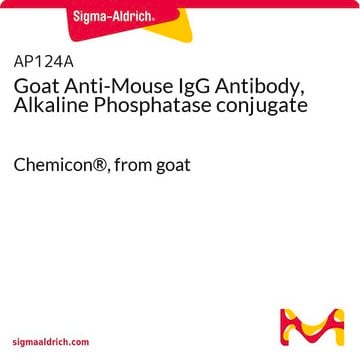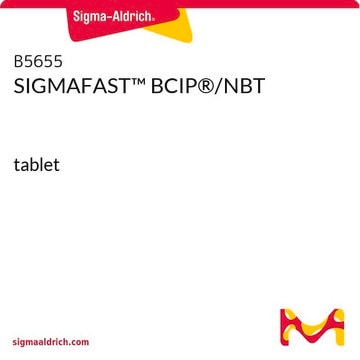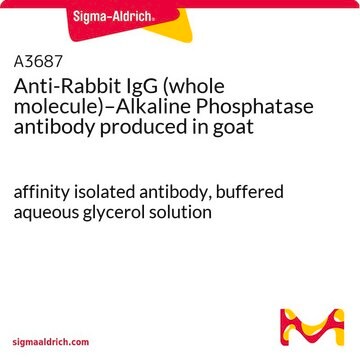DC05L
Goat Anti-Mouse IgG Alkaline Phosphatase Conjugate
lyophilized, Calbiochem®
About This Item
Productos recomendados
biological source
goat
Quality Level
antibody form
affinity isolated antibody
antibody product type
secondary antibodies
clone
polyclonal
form
lyophilized
contains
≤0.1% sodium azide as preservative
manufacturer/tradename
Calbiochem®
storage condition
OK to freeze
isotype
IgG
shipped in
ambient
storage temp.
2-8°C
target post-translational modification
unmodified
General description
Immunogen
Application
Immunoblotting (1:5000-1:100,000, colorimetric; 1:10,000-1:200,000, chemiluminescence)
Warning
Physical form
Reconstitution
Other Notes
Legal Information
¿No encuentra el producto adecuado?
Pruebe nuestro Herramienta de selección de productos.
signalword
Danger
hcodes
Hazard Classifications
Acute Tox. 3 Dermal - Acute Tox. 4 Inhalation - Acute Tox. 4 Oral - Aquatic Chronic 3
Storage Class
6.1C - Combustible acute toxic Cat.3 / toxic compounds or compounds which causing chronic effects
wgk_germany
WGK 3
Certificados de análisis (COA)
Busque Certificados de análisis (COA) introduciendo el número de lote del producto. Los números de lote se encuentran en la etiqueta del producto después de las palabras «Lot» o «Batch»
¿Ya tiene este producto?
Encuentre la documentación para los productos que ha comprado recientemente en la Biblioteca de documentos.
Nuestro equipo de científicos tiene experiencia en todas las áreas de investigación: Ciencias de la vida, Ciencia de los materiales, Síntesis química, Cromatografía, Analítica y muchas otras.
Póngase en contacto con el Servicio técnico









